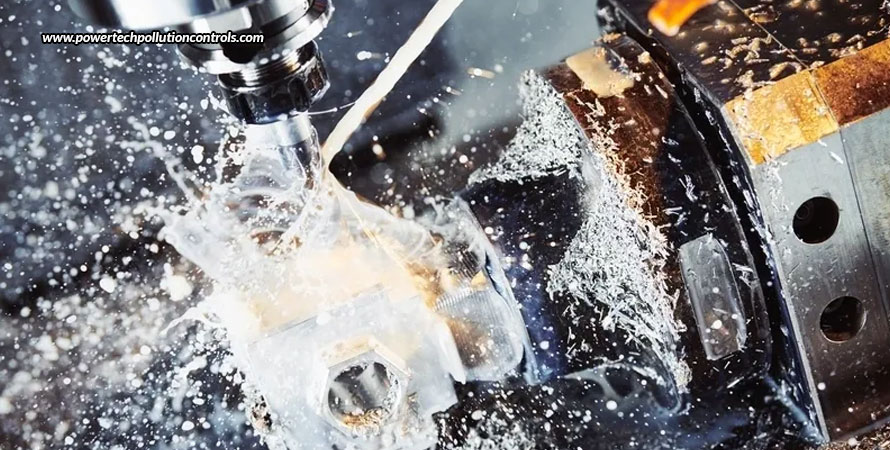
Particulate Matter In Oil Mist – A Dangerous Companion!
Particulate matter is microscopic solid or liquid airborne contamination that is generated in large amounts in industrial working environments, where welding, soldering, drilling, and other such operations are executed. The particulates are very tiny, as small as 0.1 µm, which means not even a 99th part of a strand of the hair. Humans can stop particles larger than 10 µm from entering the body, and anything smaller than that can pass the defense system. Thus, particulate matter being so tiny, can easily pass through the nostrils, then through the walls of the lungs, and enter the blood stream, resulting in severe damage to the body organs! Most deaths in industrial spaces are caused by such particulate matter.
Oil mist – A large carrier of particulate matter
Oil mist, which is generated in almost every industrial space, where there is use of oil-based liquids and coolants, is a large carrier of the dangerous particulate matter. A machine tool can generate oil mist in two ways – through evaporation or through misting. Evaporation is when the machining process heats the coolant past its boiling point, and misting is when mechanical movement sprays the evaporated lubricant back on the surfaces of equipment, flooring, and workers’ clothes. This oil mist generated, apart from settling on nearby surfaces, also easily passes through even the smallest of gaps, and spreads across the wider workshop environment, thus affecting everyone within the workspace, along with the direct machining operators.
What is oil mist made of?
The exact make-up of the oil mist differs depending upon the application, and the kinds of materials used in the operation. Nevertheless, exposure to any kind of oil mist, comprising of any kinds of materials, is detrimental to both human health and the surrounding environment. That’s because the basic make-up of this contaminant includes oil, additives, metal slivers, bacteria spores, coating particles, and cutting tool shards. Whatever the metal, whatever the shards, and whatever the additives, it’s going to be dangerous for sure!
How does oil mist prove to be harmful?
High rotational speeds, increased process heat, and high-pressure coolants results in the machining processes to create finer and finer aerosols. The size of the particulate matter may differ, depending upon the coolants used and processes executed, but it certainly proves to be a dangerous contaminant. Most oil mist lingers in the air, posing an inhalation risk to everyone in the space. Moreover, when the oil mist settles on the floors, it can cause slips and accidents. Also, any oil mist on the surfaces, if ignited, can cause a huge fire mishap!
How can the problem be resolved?
It is essential to consider all these dangers and mishaps, and come up with a solution to combat this dangerous contaminant. It is thus advised to install a mist collector in the workplace to capture and control all sort of oil mist, thus freeing the employees and surfaces in the workplace from the contaminant. Powertech Pollution Controls’ Mistkiller is a trademarked high-efficiency centrifugal oil mist collector that is designed and developed for the control of most types of mist that is generated by the use of water-based coolants or liquids. With a built-in suction fan, that is driven by an induction motor, powerful suction sucks in the mist into the Mistkiller, which is then passed through a centrifugal force that condenses the mist and collects liquid down the PVC duct, returning it back to the generating equipment for re-use. In this way, the air becomes free from the harmful oil mist, and the generated oil mist is converted for re-usage, thus eliminating wastage! It’s thus a win-win situation at both ends with such an oil mist filtration installed!


